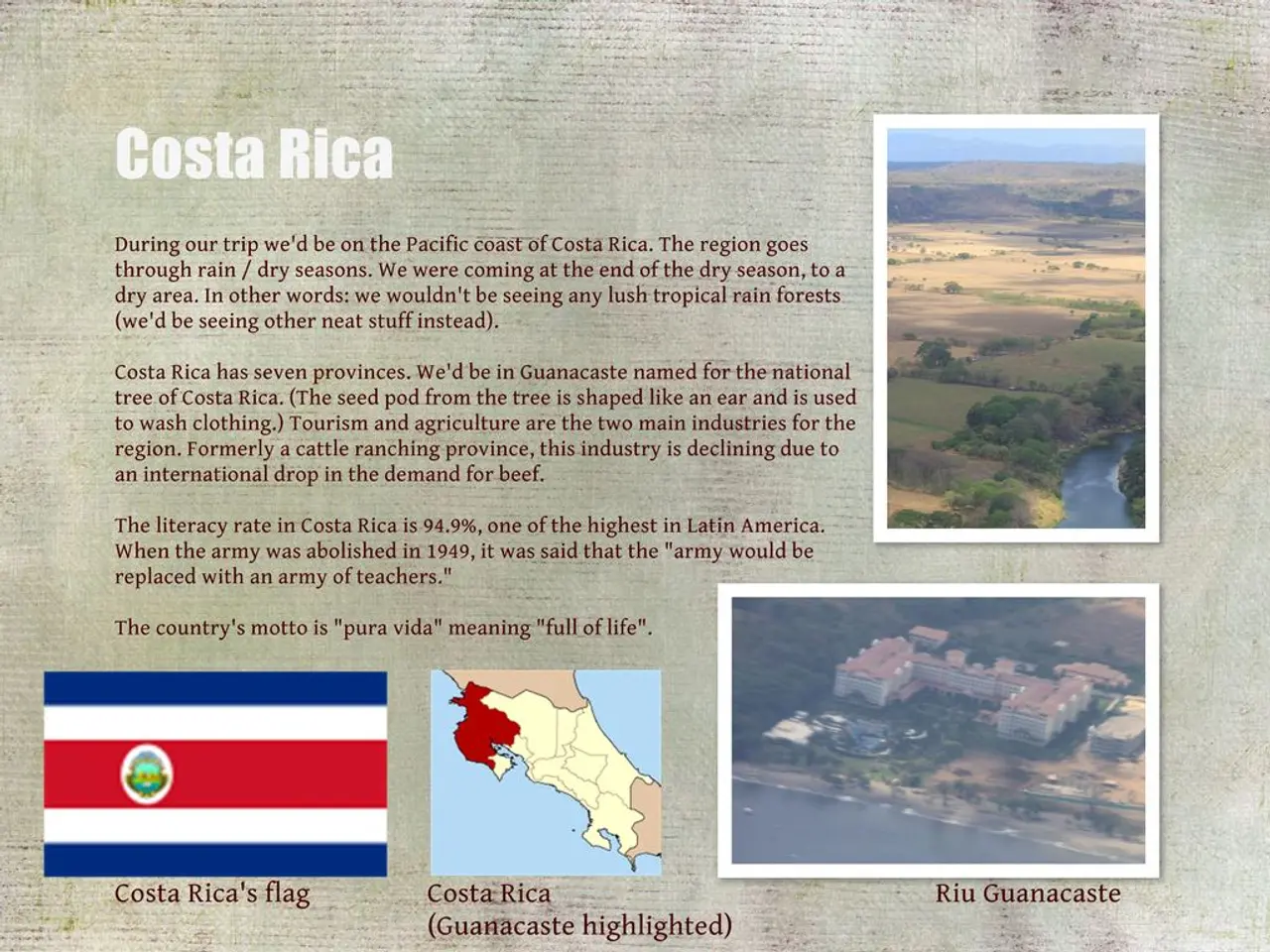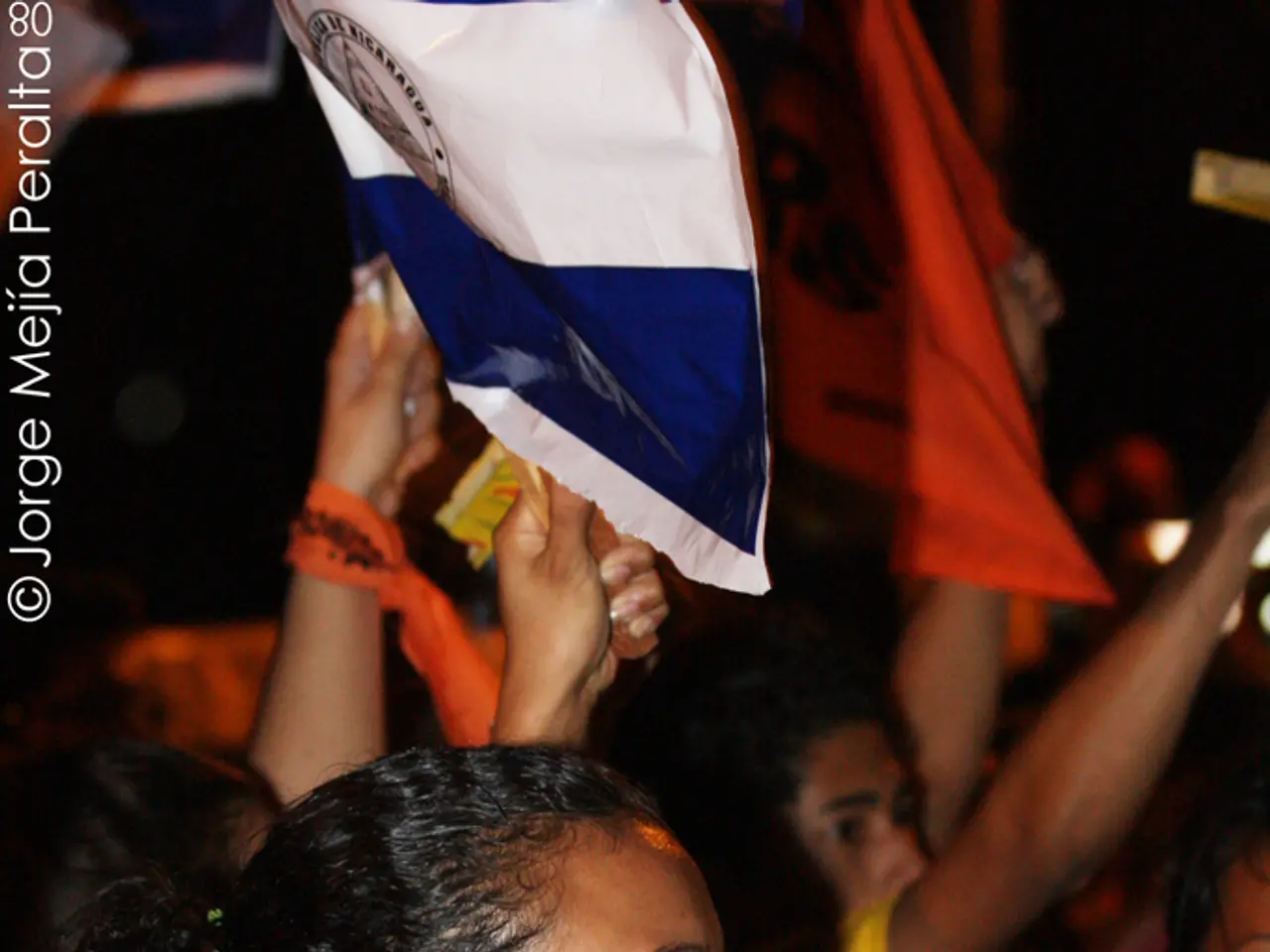"Palestinian Authority accuses Israel of initiating aggressive strategy within Gaza"
Israel Plans Military Operation to Seize Gaza City, Sparking International Outcry
Israel, under the leadership of Prime Minister Benjamin Netanyahu, has secured cabinet approval for a military operation to seize Gaza City as part of its strategy to defeat Hamas and recover hostages after nearly two years of conflict. The Israeli Defense Forces (IDF) are preparing for this operation, which aims to disarm Hamas and establish Israeli security control over Gaza City and the wider Gaza Strip, with a civilian administration neither Hamas nor the Palestinian Authority (PA) [1][3].
The decision to seize Gaza City marks a significant escalation but stops short of a full takeover of the Gaza Strip. The operation envisions forcibly displacing up to 800,000 civilians from Gaza City by early October 2025, with military operations possibly lasting several months to clear Palestinian armed groups from central Gaza camps [3].
The Palestinian Authority, led by President Mahmoud Abbas, has condemned this plan vehemently, calling it a "complete crime" amounting to genocide, systematic killing, starvation, and siege, as well as a violation of international law and UN resolutions [2]. Hamas and broader Palestinian society also strongly oppose the Israeli operation, viewing it as part of a broader attempt at permanent occupation.
The international community has responded with widespread criticism. The United Nations Secretary-General and multiple UN officials have expressed grave concern, warning of catastrophic humanitarian consequences, including large-scale displacement, killings, and worsening of Gaza’s existing humanitarian crisis marked by starvation and lack of access to aid [3][4]. The UN Security Council held emergency sessions denouncing the escalation, and Secretary-General António Guterres has called repeatedly for a permanent ceasefire, unimpeded humanitarian access, and the release of all hostages [4].
The foreign ministers of Italy, Australia, Germany, New Zealand, and the United Kingdom have issued a statement criticizing the decision to occupy Gaza City. Internally, tens of thousands (including former hostages) have protested the plan within Israel, fearing the safety of hostages and soldiers would be endangered [2]. Pro-Palestinian protests have taken place internationally, including mass arrests in London.
In a statement, the Israeli campaign group the Hostages and Missing Families Forum expressed similar concerns, urging the government to prioritize the safety of hostages and soldiers over military operations. The conflict continues to unfold in Gaza, a territory home to approximately three million Palestinians and around half a million Israelis living in settlements considered illegal under international law.
According to Hamas-run Gaza's health ministry, Israel's offensive has killed over 61,000 Palestinians. The United Nations considers these figures to be reliable [1]. Despite the backlash, Israeli Prime Minister Benjamin Netanyahu has remained defiant over the decision, stating that they are not going to occupy Gaza, but free it from Hamas. The Palestinian Authority, conceived as a first step towards a Palestinian state, exercises limited administration over parts of the Israeli-occupied West Bank.
In a statement, PA leader Abbas emphasized the urgent need to stop the operation immediately and the importance of enabling the State of Palestine to assume its full responsibilities in the Gaza Strip [2]. Supporters of the hostages demonstrated in Tel Aviv, condemning the government's war plans, stating that expanding the fighting endangers the hostages and soldiers.
In the same meeting, the Israeli security cabinet adopted a set of principles for concluding the war in Gaza, including demilitarizing the territory and establishing a new administration that is neither Hamas nor the Palestinian Authority [1]. The statement issued by the Israeli government states that occupying Gaza City will exacerbate the catastrophic humanitarian situation, endanger the lives of hostages, and increase the risk of a mass exodus of civilians.
In the past, Hamas's attacks on Israel have resulted in the deaths of 1,219 people [1]. The conflict continues to unfold, with both sides showing no signs of backing down. The international community and humanitarian organizations will continue to monitor the situation closely, urging for a peaceful resolution to the ongoing conflict.
- The Israeli government's plan to seize Gaza City has attracted significant critique from various international governments, including those of Italy, Australia, Germany, New Zealand, and the United Kingdom.
- The international community, including the United Nations and its Secretary-General António Guterres, has expressed concern over the humanitarian consequences of the military operation, such as displacement, killings, and exacerbating Gaza's existing crisis.
- The Israeli campaign group, Hostages and Missing Families Forum, has expressed concerns about the safety of hostages and soldiers during the proposed military operation in Gaza City.
- The ongoing conflict in Gaza, involving Israel and Hamas, has escalated health concerns, with the Hamas-run Gaza's health ministry reporting over 61,000 Palestinian deaths, a figure considered reliable by the United Nations.






